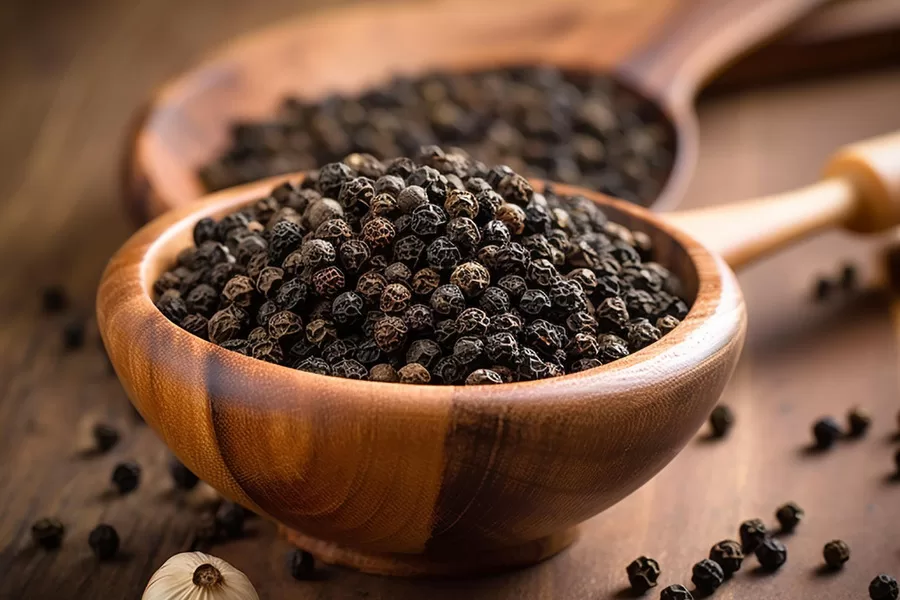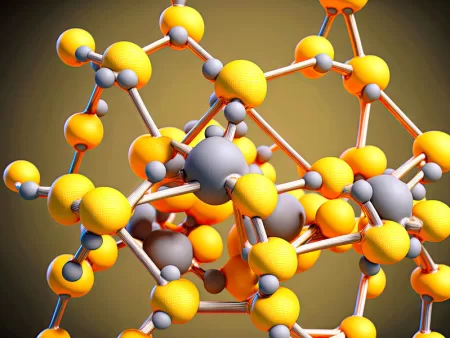
How does a common, basic seasoning in the kitchen, such as black pepper, affect weight loss? Does it have a negative effect on the body or does it only have benefits?
Weight Management With Piperine
Hidden within the common kitchen spice, black pepper, lies a component with remarkable health attributes – piperine. This element is more than just a flavor enhancer; it is a gateway to potential weight management benefits, unveiling a new perspective on an everyday spice.
Metabolic Synergy of Piperine
Piperine shines in its ability to synergize with the body’s metabolic processes. By inducing thermogenic activity, it essentially nudges the body into a state of increased calorie consumption, subtly yet effectively contributing to a more dynamic metabolic rate.
Targeting Fat Cells
Notably, piperine goes beyond mere calorie burning. It ventures into influencing the lifecycle of fat cells. Its anti-adipogenic properties suggest a role in hindering the development of new fat cells, an innovative angle in the approach to weight management.
Boosting Digestive Efficiency
Piperine’s role in enhancing digestive efficiency is a lesser-known but vital aspect of its benefits. By improving how our bodies assimilate and utilize nutrients, it contributes to a more effective and satisfying dietary experience, indirectly aiding in weight control.
Glycemic Balance
Another key aspect of piperine’s influence is its potential effect on maintaining glycemic balance. This balance is crucial in managing hunger and reducing the urge for impulsive snacking, thereby supporting consistent and healthy weight management practices.
Amplifying Nutrient Impact
Piperine’s ability to amplify the impact of other nutrients adds another layer to its weight management capabilities. This enhancement of nutrient bioavailability, particularly with compounds like curcumin, illustrates piperine’s role in reinforcing the overall dietary quality.
To summarize, piperine proves to be a versatile ally in weight control, providing a variety of advantages such as:
- Piperine enhances metabolic processes, resulting in accelerated calorie burning.
- Enhancing nutrition absorption: It improves the body’s capacity to absorb vital nutrients from diet.
- Regulating glycemic levels: Piperine contributes to the stabilization of blood sugar levels, a critical factor in managing weight.
- Alleviating inflammation: Its ability to reduce inflammation may promote general well-being and aid in weight management.
- Piperine has the potential to suppress appetite, leading to a decrease in calorie consumption.
Piperine, a natural compound found in black pepper, significantly enhances the role of this widely used spice in promoting effective weight control.
Fat Metabolism: The Role of Black Pepper
Black pepper, a common kitchen spice, harbors more than just flavor. Its active component, piperine, is a key player in the complex world of fat metabolism.
Piperine: A Catalyst in Lipolysis
Central to the fat-burning conversation is the process of lipolysis, where triglycerides in fat cells are broken down. Piperine emerges as a catalyst in this process. By stimulating the breakdown of fat cells into free fatty acids, piperine helps mobilize fat stores, turning them into usable energy.
Halting the Formation of Fat Cells
Equally important in the weight loss equation is the prevention of new fat cell formation, known as adipogenesis. Piperine plays a defensive role here, potentially blocking the creation of new fat cells. This dual attack on existing fat and prevention of new fat accumulation is a cornerstone of piperine’s weight management prowess.
Enhancing the Digestion of Fats
Another facet of piperine’s impact lies in its ability to boost the effectiveness of fat-digesting enzymes. This implies a more efficient processing of dietary fats, ensuring they are used for energy rather than stored as body fat. This mechanism is a subtle yet significant contribution to weight control.
Beyond Fat Breakdown
Piperine’s role extends to modifying various biological pathways and hormonal balances linked to fat metabolism and energy expenditure. Its influence on gene expression, signaling pathways, and hormonal regulation underscores its potential as a comprehensive tool in managing body weight.
Understanding the Current Research Landscape
While research into piperine’s effects on fat metabolism is promising, it’s important to acknowledge that this field is still developing. Current studies, mainly in controlled settings or animal models, offer encouraging insights but also highlight the need for further, more extensive human research to conclusively understand piperine’s impact.
Black Pepper’s Influence on Hunger Management
The journey to weight loss often starts with managing hunger, and black pepper, a spice found in almost every kitchen, might just be a secret ally. The pungent flavor of black pepper, primarily due to piperine, is not just for taste. It also has a role in signaling the brain to help regulate the feeling of satiety. By influencing the body’s hunger signals, black pepper can be a valuable tool in controlling calorie intake, essential for weight loss.
Thermogenesis: How Black Pepper Naturally Boosts Calorie Burning
Thermogenesis is like the body’s natural furnace, burning calories to produce heat. Black pepper, particularly through piperine, can turn up this furnace, enhancing the body’s natural process of burning calories. This increased thermogenic activity means that the body can burn more calories throughout the day, even during periods of rest, potentially aiding in weight loss efforts.
Unveiling the Scientific Evidence Behind Piperine’s Effects
Recent scientific exploration into piperine’s impact on appetite and thermogenesis has been illuminating. Research suggests that piperine might interact with metabolic pathways, enzymes, and hormones that are integral to controlling appetite and metabolism. These studies provide a glimpse into how black pepper could contribute to increased energy expenditure and reduced hunger, though further research, particularly in human trials, is needed for more definitive conclusions.
Integrating Black Pepper into Your Daily Diet
Incorporating black pepper into everyday meals could be a simple and flavorful strategy for those aiming to manage their weight. Its potential to aid in feeling fuller and increasing calorie burning makes it an attractive addition to a balanced diet. From seasoning vegetables to sprinkling over proteins, black pepper can enhance the taste and possibly the weight loss benefits of various dishes.
Transforming Your Diet with Black Pepper
Enhancing Morning Meals with a Dash of Black Pepper
Invigorate your breakfast with a sprinkle of black pepper. Whether it’s over scrambled eggs, within a fruit salad, or atop morning toast, black pepper adds a flavorful and healthy kick. It’s an excellent way to start your day, boosting both taste and metabolic health.
Liven Up Your Lunches and Dinners with Black Pepper
Black pepper can significantly enhance your main meals. It’s versatile enough to complement a wide range of dishes, from hearty stews to light salads. Adding it to your lunch or dinner recipes not only elevates the flavor profile but also aids in digestion and nutrient absorption.
Revolutionizing Snack Time with Black Pepper
Reinvent your snacks by incorporating black pepper. It works well with diverse snack options, from crunchy veggies to savory crackers. Sprinkling black pepper on snacks is a simple way to enjoy a burst of flavor while imbuing your snacks with health benefits.
Black Pepper in Beverages: A Creative Twist
Black pepper can also add a creative twist to your beverages. From a pinch in warm teas to a sprinkle in fruit juices, black pepper can surprise and delight the palate. Its inclusion in drinks not only enhances taste but also offers nutritional benefits.
The Widespread Benefits of Incorporating Black Pepper in Your Diet
In conclusion, black pepper is a versatile and beneficial addition to any diet. Its presence in meals and beverages goes beyond flavor enhancement, contributing to healthier eating habits. Embracing black pepper in your everyday cooking can lead to a more balanced and enjoyable diet.
Safety in use
Navigating Medication Interactions
For individuals taking prescribed drugs, it’s crucial to be aware of potential interactions with this spice. The active component, piperine, may alter medication effects. Consulting healthcare professionals is recommended to ensure safe integration into your diet.
Considerations for Specific Health Situations
Those with digestive sensitivities, such as stomach ulcers, should be cautious. Excessive use might exacerbate these issues. Also, reducing intake is advisable before surgical procedures due to its effects on blood clotting.
Incorporating in Weight Management Plans
In a weight loss regimen, moderation is key. While it enhances meal flavor, it should align with a balanced diet and physical activity. A sprinkle can aid in nutrient absorption, contributing to weight management without excessive use.
Optimal and Safe Usage for Health Benefits
In sum, while this spice offers numerous dietary benefits, cautious use is essential. Professional advice is invaluable, particularly for those with health concerns or taking medications. When used judiciously, it can be a beneficial addition to your culinary routine.
Conclusion
Piperine in this common spice actively boosts metabolic rates, leading to more effective use of calories. It not only hinders new fat cell growth but also accelerates the breakdown of existing fat deposits. Improves the body’s efficiency in digesting food and extracting more nutrients from what we eat. Regulates sugar levels in the bloodstream, aiding in managing appetite and supporting gradual weight reduction. Enhances the absorption and effectiveness of other beneficial compounds in foods, enriching the diet’s nutritional profile. Advised to be used with consideration for people with certain health conditions or those under medication regimes. Adding this spice to meals not only boosts flavors but also enriches the health qualities of everyday diets.
FAQs
By increasing metabolic rate, piperine aids in burning calories more efficiently and supports the reduction of fat accumulation.
Piperine actively disrupts the process of generating new fat cells and facilitates the breakdown of already existing ones.
Piperine enhances digestive efficiency, leading to better absorption and utilization of nutrients from our food.
Piperine assists in stabilizing blood sugar levels, which can help in controlling hunger and reducing cravings.
Those on medication should consult with a healthcare provider, as piperine can interact with some drugs, affecting their efficacy.
Adding piperine enhances not just taste but also contributes to better metabolic health, nutrient absorption, and aids in weight loss efforts.







